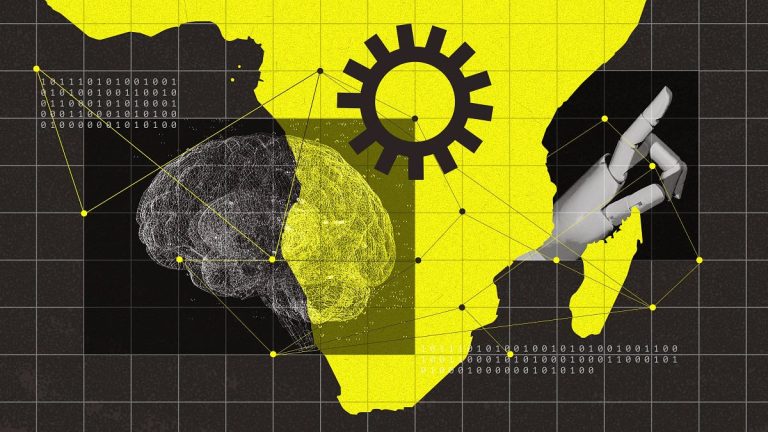Synthetic Intelligence (AI) and Machine Studying (ML) maintain transformative potential for Africa, promising financial progress, social growth, and technological development. To maximise these advantages, African leaders should implement strategic insurance policies that place the continent to completely leverage AI and ML. This text outlines key coverage suggestions and explores the numerous benefits of those applied sciences, presenting a compelling imaginative and prescient for Africa’s AI-driven future.
The Upside of AI and ML in Africa
AI and ML can drive important enhancements throughout varied sectors in Africa, providing options to long-standing challenges and opening new avenues for growth.
Firstly, AI-powered fintech options can improve monetary inclusion by offering entry to monetary companies for the unbanked inhabitants. Digital fee platforms and cellular banking can drive financial empowerment, foster entrepreneurship, and cut back poverty.
In training, AI can personalise studying experiences by tailoring them to particular person wants. Clever tutoring programs and AI-driven platforms can facilitate distant studying, making training extra accessible and bridging the tutorial divide.
In healthcare, AI-driven diagnostic instruments can enhance affected person outcomes and cut back mortality charges by way of correct and well timed illness detection. Telemedicine powered by AI can supply distant consultations and monitoring, whereas optimising healthcare provide chains.
AI and ML also can enhance productiveness and effectivity throughout industries equivalent to agriculture and manufacturing. Precision farming and AI-driven manufacturing processes can improve profitability and create new job alternatives, supplied there’s a concentrate on reskilling and upskilling the workforce.
Coverage Suggestions
To totally realise the potential of AI and ML, African leaders should implement strategic insurance policies that create an enabling atmosphere for these applied sciences.
Firstly, investing in digital infrastructure is essential. Governments ought to prioritise constructing strong digital networks, high-speed web, dependable energy provides, and knowledge centres, significantly in rural areas. Increasing cellular connectivity can be important. Encouraging telecom corporations to put money into rural and underserved areas will present extra folks with entry to digital companies.
Fostering training and abilities growth is one other key space. Instructional programs should adapt to organize college students for the AI-driven future by integrating AI and ML programs into college and college curricula. Selling STEM training by way of scholarships, grants, and incentives will assist construct a robust expertise pool.
Furthermore, supporting analysis and innovation is important for driving developments in AI and ML. Governments ought to put money into establishing AI analysis centres and innovation hubs to foster collaboration between academia, business, and authorities. Encouraging native innovation by way of insurance policies that assist startups and tech entrepreneurs with funding, tax incentives, and entry to sources will nurture a fruitful tech ecosystem.
Creating strong regulatory frameworks is crucial for constructing belief in AI programs. Guaranteeing knowledge privateness and safety by way of stringent knowledge safety legal guidelines will align with worldwide requirements and facilitate the event of worldwide implementable options. Creating moral AI tips will handle points equivalent to bias, transparency, and accountability in AI programs.
Selling monetary inclusion and the digital financial system will additional drive progress. Encouraging the event and adoption of cellular banking and fee platforms will improve monetary inclusion. Governments ought to create an enabling atmosphere for the digital financial system by lowering obstacles to entry for tech companies and offering tax breaks for digital enterprises.
Strengthening worldwide collaboration will present a lot wanted entry to superior applied sciences, experience, and funding. Africa ought to actively take part in international AI and ML initiatives and leverage diaspora networks to faucet right into a wealth of data and expertise. Encouraging the return of expert professionals and fostering distant collaboration will deliver useful abilities and views to native AI tasks.
It’s clear that addressing socioeconomic disparities is essential for making certain inclusive progress. Insurance policies should be certain that the advantages of AI and ML attain all segments of society, together with marginalised and underserved communities. Initiatives that present reasonably priced entry to digital instruments and companies are important. Selling gender equality in tech by encouraging girls’s participation in AI and ML fields by way of supportive insurance policies will assist bridge the gender hole.
Conclusion
Shaping Africa’s AI and ML panorama undoubtedly requires a multi-stakeholder effort, with private and non-private sector leaders enjoying pivotal roles. By investing in digital infrastructure, fostering training, supporting analysis and innovation, growing regulatory frameworks, selling monetary inclusion, strengthening worldwide collaboration, and addressing socioeconomic disparities, Africa can harness the transformative energy of AI and ML. Strategic insurance policies and visionary management will be certain that Africa is well-positioned for sustainable growth and inclusive progress.
